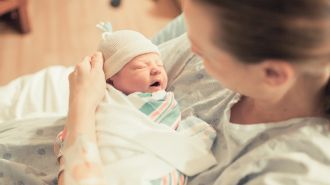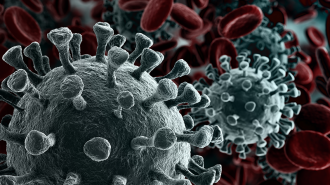- Our studies
- Our research
- Publications and resources
- Data access and training
- About
- News
- Events
- Get in touch
- Join our mailing list
Welcome to our news and blogs section. Here you’ll find the latest developments and insights from across our longitudinal studies.
Growing Up in Digital Europe (GUIDE) is the UK pilot of a major European initiative to create internationally harmonised data for research on child development and wellbeing.

Children conceived through medically assisted reproduction who are born small do just as well in cognitive tests during childhood and adolescence as naturally conceived children who are born a normal weight, finds a new study led by UCL researchers.

Our initial findings from the Millennium Cohort Study Age 17 Sweep cover a range of themes, including mental health, obesity, substance use and antisocial behaviours.

Researchers from around the world have been using CLS study data to tackle important questions. Here is a round-up over 40 new pieces of research that we’ve added to the CLS bibliography between October and December 2020.

Data collected from CLS’s four cohort studies will be used to help improve the understanding of the risk factors, symptoms and treatment of the long term effects of COVID-19, in a major new research project announced today.

Almost a third of 17-year-olds have tried cannabis and one in 10 have tried harder drugs, such as cocaine, ecstasy and ketamine, with similar rates of experimentation regardless of parents’ education level, finds a new study by UCL researchers.

With the whole country in lockdown again, the UCL Centre for Longitudinal Studies (CLS) is conducting another web survey of thousands of cohort study participants, to find out how the COVID-19 pandemic continues to affect the lives of different generations of people in the UK.
Several administrative health records have recently been linked to the CLS cohort studies survey data, opening up new possibilities for health researchers. In this webinar, researchers found out what’s included in the linked datasets and how to access them.

This project aims to develop a conceptual and empirical understanding of social isolation across the life course and generate comparable measures across cohorts.

More than one third of UK teenagers are starting adult life with excess weight (either overweight or obese), and rates are even higher among the poorest, finds a new study led by UCL researchers.

Researchers can now access new information about how the COVID-19 pandemic has impacted the lives of almost 26,000 cohort study participants.

Researchers from around the world have been using CLS study data to tackle important questions. Here is a round-up over 100 new pieces of research that we’ve added to the CLS bibliography between April and September 2020.

16% of teenagers report high levels of psychological distress at age 17, finds a new study led by UCL researchers based on data collected in 2018-19. The findings also show 24% of young people report self-harming and 7% report self-harming with suicidal intent by age 17.
Ryan Bradshaw
Senior Communications Officer
Phone: 020 7612 6516
Email: r.bradshaw@ucl.ac.uk